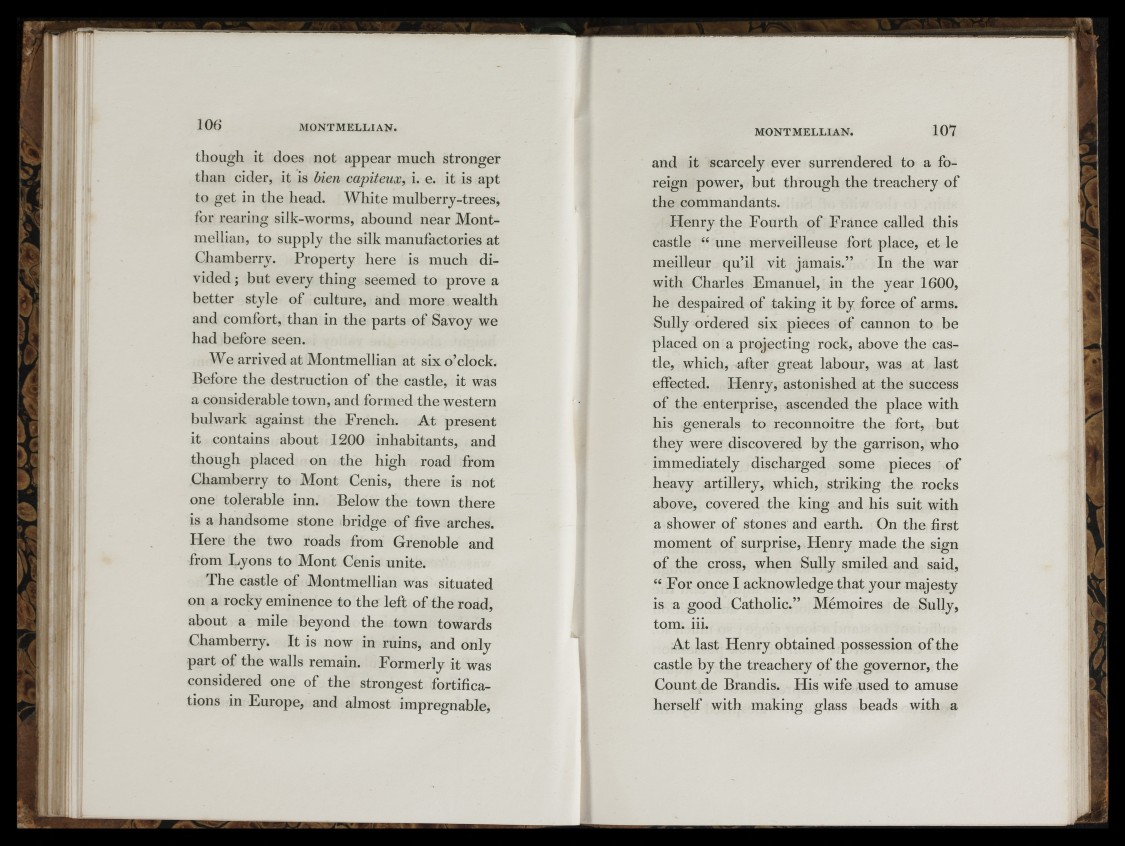
106 M O N T M E L L I A N .
though it does not appear much stronger
than cider, it is bieti capiteux, i. e. it is apt
to get in the head. White mulberry-trees,
for rearing silk-worms, abound near Montmellian,
to supply the silk manufactories at
Chamberry. Property here is much divided
; but every thing seemed to prove a
better style of culture, and more wealth
and comfort, than in the parts of Savoy we
had before seen.
We arrived at Montmellian at six o’clock.
Before the destruction of the castle, it was
a considerable town, and formed the western
bulwark against the French. At present
it contains about 1200 inhabitants, and
though placed on the high road from
Chamberry to Mont Cenis, there is not
one tolerable inn. Below the town there
is a handsome stone bridge of five arches.
Here the two roads from Grenoble and
from Lyons to Mont Cenis unite.
The castle of Montmellian was situated
on a rocky eminence to the left o fth e road,
about a mile beyond the town towards
Chamberry. It is now in ruins, and only
part of the walls remain. Formerly it was
considered one of the strongest fortifications
in Furope, and almost impregnable.
M O N T M E L L I A N . 107
and it scarcely ever surrendered to a foreign
power, but through the treachery of
the commandants.
Henry the Fourth of France called this
castle “ une merveilleuse fort place, et le
meilleur qu’il vit jamais.” In the war
with Charles Fmanuel, in the year 1600,
he despaired of taking it by force of arms.
Sully ordered six pieces of cannon to be
placed on a projecting rock, above the castle,
which, after great labour, was at last
effected. Henry, astonished at the success
of the enterprise, ascended the place with
his generals to reconnoitre the fort, but
they were discovered by the garrison, who
immediately discharged some pieces of
heavy artillery, which, striking the rocks
above, covered the king and his suit with
a shower of stones and earth. On the first
moment of surprise, Henry made the sign
of the cross, when Sully smiled and said,
“ For once I acknowledge that your majesty
is a good Catholic.” Mémoires de Sully,
tom. iii.
At last Henry obtained possession of the
castle by the treachery of the governor, the
Count de Brandis. His wife used to amuse
herself with making glass beads with a
h